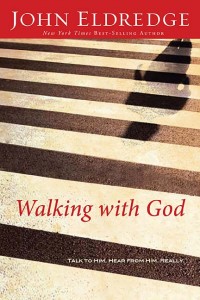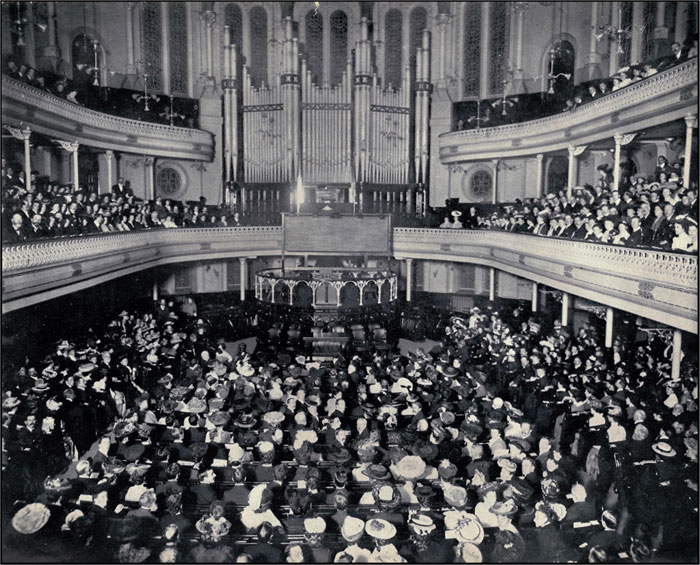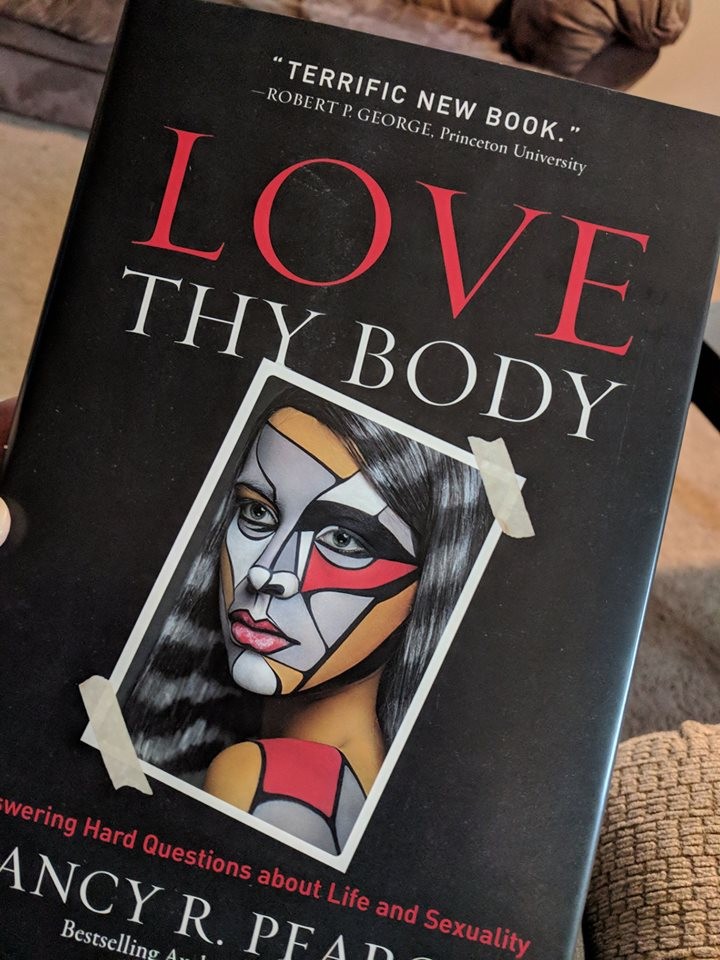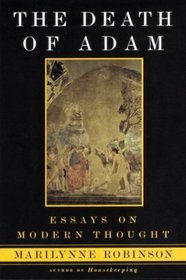Walking with God
 John Eldredge is a needed voice. He writes about something that might seem obvious — how to walk with God daily. But lately, listening to others, I’ve realized that this is something many people don’t know how to do. They know how to have a “conversion experience.” They know how to go to church, how to sign up for activities there, and how to talk the talk. But how to listen to God’s voice in their everyday lives? Not so much.
John Eldredge is a needed voice. He writes about something that might seem obvious — how to walk with God daily. But lately, listening to others, I’ve realized that this is something many people don’t know how to do. They know how to have a “conversion experience.” They know how to go to church, how to sign up for activities there, and how to talk the talk. But how to listen to God’s voice in their everyday lives? Not so much.
That’s where John Eldredge comes in with Walking with God. He takes us through a year of his spiritual journal, essentially. He demonstrates what it means to seek God through the Bible, and through prayer, and through being willing to stop and listen at moments that we might be tempted to blow right by — moments of heartache, or heaviness, or decision in comparatively small matters.
I have to stop here for a moment, because it’s so easy to judge what “small matters” are. I remember a Bible prof speaking on God’s will once when I was in college. He wanted to make the point that it’s okay to use common sense about some things, and at one point he leaned into the mic and said emphatically, “God doesn’t care what color tie you wear!”
Point taken — sort of. The same issue came up recently in our parenting class at church, where some of us questioned whether the author of the book we were reading was over-spiritualizing when he stopped the family and suggested asking God whether they should go to Disney World.
But really, couldn’t everything we struggle with here in our mundane lives be considered trivial to the eternal mind? The truth is, I’ve prayed for some embarrassingly trivial things, and when God has answered it has communicated his love and involvement very compellingly. In other more “important” matters, he remains silent. So who am I to judge what’s important and what’s not important to God? He has his own scale of values, his own plan that he’s unfolding. And more to the point, who am I to judge what’s “trivial” for someone else? Walking with God brought me back to this issue and reminded me that seemingly small, quiet moments can be the most significant of all in determining the course of our lives.
I struggle, though, with Eldredge’s warfare emphasis. Many times he comes back to the need to pray against demonic activity. Scripture teaches that there are demons, and they are active in the world. But reading this, the dark spirits come off sounding more powerful than God. If Jesus has already won the war, why would we have to re-fight every day by praying the incredibly specific prayers Eldredge gives here — prayers that imply that Jesus will not protect us unless we give him specific instructions as to how and against what.
In II Peter, we’re told that “his divine power has given us everything we need for life and godliness, according to our knowledge of him who called us by his own glory and goodness. Through these he has given us his very great and precious promises, so that through them you may participate in the divine nature and escape the corruption in the world caused by evil desires.” The battle is already won for those of us who are in Christ, and here Peter is telling us how to walk in that victory: through our knowledge of the truth. This is one of the things I loved about Spiritual Depression — its emphasis on the importance of knowing, and structuring our lives according to, Scripture. It’s not about going out and vanquishing demons by naming them and giving God instructions on how to fight them off. He’s already done that.
So much for my reservation about Walking with God (a reservation I also feel when I read Waking the Dead, another Eldredge book). But the basic model Eldredge provides is very useful and truthful. Eldredge has a realness, a grittiness, that carries a lot of credibility. He doesn’t sound churchy, or use evangelical-speak. He writes about real things that real people struggle with: runaway thought life, heart desires that we bury rather than trusting God with, the impulse to do life on our own. Dallas Willard writes that prayer is “talking to God about what we are doing together,” but it’s Eldredge who shows us what this looks like in an accessible way.



5 Comments
Amy @ Hope Is the Word
I tried Eldridge way back at Captivating (Captivated?), but you make me want to give him another chance.
Carrie, Reading to Know
I read the Captivating/Wild at Heart books. And then I was sent a copy of their latest book on marriage and it was a repeat of Captivating and Wild at Heart. I am afraid he’s turning into one of those, “I wrote one popular book and so now my publisher wants me to keep writing” authors.
I’m not sure I can stomach him again, actually, although I did appreciate hearing your thoughts on the book. I also hesitate to read him for exactly the point you mentioned here about the idea of making the evil spiritual forces out to be so threatening as to be almost more powerful than God. I know it’s not the intent of the author or other persons to do such a thing but the ground there becomes a little unstable when they focus so much time and attention on that subject matter.
I do agree though that a lot of people do NOT understand what it means to have a spiritual walk with the Lord and in that case, this book could be very helpful.
All that to say, I appreciated reading your thoughts. Thanks for sharing them! =)
Janet
I agree that there is a sameness to the message. This covered much of the same ground as Waking the Dead. I find that I’m tired after reading a John Eldredge book, and ready for it to end. But I need to be reminded of some of the things he writes about — especially the distinction between going through the motions, and living from the heart.
Alice@Supratentorial
Good review. I also read Eldredge a while ago and thought he had some interesting and theologically sound points but his style just wasn’t one I liked. I have found many more men who seemed to enjoy his books. Maybe his voice is more appealing to the masculine heart.
Barbara H.
I haven’t read an Eldredge book yet. I agree with your comments about spiritual warfare and the verses in II Peter. I had a relative really into that kind of thing, and she wrote out some formula prayers — as if getting the words just right would impress God or unlock the power needed or something, almost more like an incantation.
I agree, too, that seeing God answer prayer or provide for something quite small in the grand scheme of things makes me feel loved and cared for.